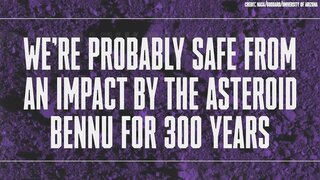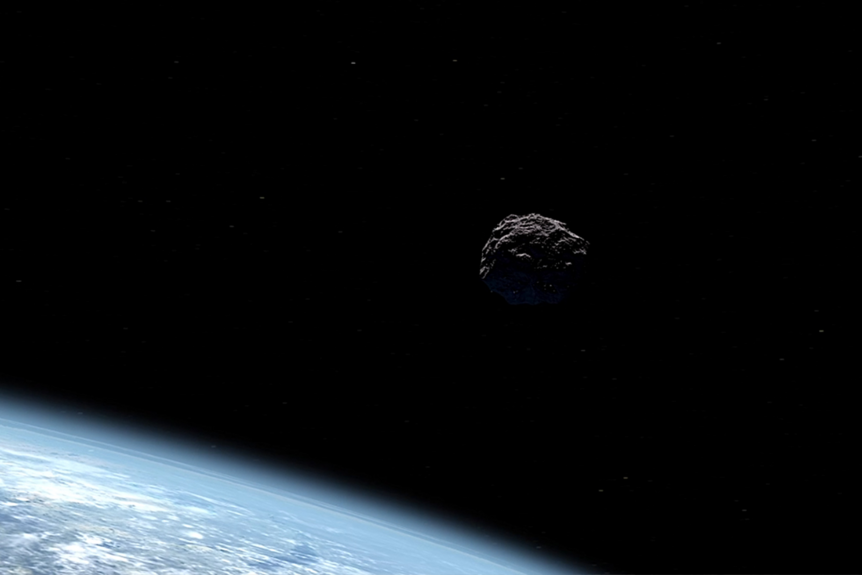Create a free profile to get unlimited access to exclusive videos, sweepstakes, and more!
Asteroid Spotted Just Hours Before It (Safely) Struck the Earth
This time, news of an asteroid impact is a good thing.
Dissatisfied with the hustle and bustle of city life, Spencer returns to his childhood hometown, hoping for a quieter existence with his wife and daughter. They haven’t even finished unpacking when the news of an imminent asteroid impact hits the airwaves. That’s just the beginning of the trouble in the 2021 disaster flick, Asteroid.
As the titular asteroid grows nearer, scientists get a better understanding of where it will hit, narrowing the possible point of impact from somewhere in the United States to somewhere in New York and finally to an isolated house freshly inhabited by Spencer and his family. Their so-called quiet life is about to get a lot less quiet.
The official government response to the incident leaves a lot to be desired, but there’s something hopeful in the fact that the fictional residents of Oneonta, New York received any advance warning of the impact at all. Recently, real-world astronomers detected an incoming asteroid just hours before it made contact with our planet.
Astronomers predicted the impact of an asteroid just eight hours in advance
For most of human history, there was nothing anyone could do to predict or prevent an asteroid impact. Today, there are projects like NASA’s DART mission aimed at deflecting near-Earth objects alongside other avenues of research looking for other ways to protect the planet from cosmic destruction. But before we can stop an impactor, we need to see them coming.
The Steward Observatory outside Tucson, Arizona is home to the NASA-funded Catalina Sky Survey, which monitors the skies for potentially dangerous impactors. On the morning of September 4, 2024, the survey picked up a previously unknown asteroid on a collision course with Earth. Fortunately, the asteroid dubbed 2024 RW1 was only about a meter wide and no real threat to the Earth or anyone on it.
First detected just eight hours before impact, 2024 RW1 is only the ninth asteroid ever detected prior to impact, according to a social media post by the European Space Agency (ESA). Based on initial observations, the asteroid was predicted to impact over the Philippines, near Luzon Island at 17:08 UTC (1:08 p.m. Eastern). The ESA noted that the impact posed no threat but that the atmospheric explosion might be visible to anyone in the area.
Later observations constrained the orbital path, and the predicted time of impact was updated to 16:39 UTC, about 30 minutes earlier than previously predicted. The 3-foot-wide asteroid exploded in the sky just over Luzon Island, as predicted. The event could be seen as far as 250 miles away from the point of impact, provided sightlines weren't blocked by cloud cover. Unfortunately, the asteroid came in near tropical storm Yagi, which made observation of the fireball explosion difficult. Still, videos of the fireball have emerged online with some viewers reporting seeing a flash of light, even through thick clouds.
The fact that we can detect asteroids as small as 2024 RW1 hours in advance bodes well for our ability to identify and track larger objects which might actually pose a threat to human civilization. If things go according to plan, news of impending asteroid impacts will become even more common, not because there are more asteroids but because we keep getting better at finding them.
Watch Asteroid, streaming now on Peacock.































